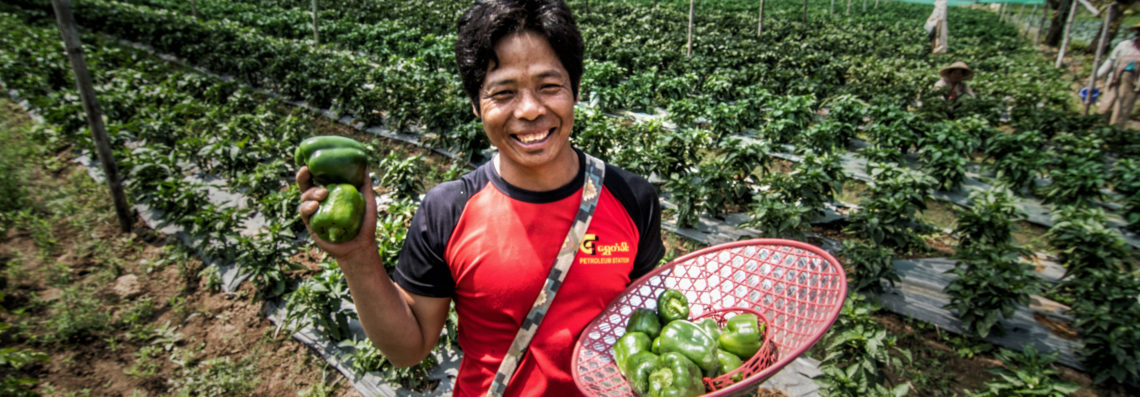The microfinance industry is in trouble. And, along with it, the funding of nearly 140 million businesses representing nearly half of jobs worldwide. This is a global crisis that is, unfortunately, flying under the radar. Microfinance is a high-touch industry. Loans are initiated in-person. Loans are collected in-person. During the current stay-at-home orders seen around the world meant to curb the COVID-19 pandemic, these transactions aren’t taking place. As a result, the investment groups that back microfinance institutions (MFIs) have begun suspending funds, leaving lenders and their clients vulnerable.
What’s happening in Pakistan highlights this issue. According to the Economist, the only lenders still operating in this country today are those that have been able to transition their business online. The shift to digital financial services is no longer a luxury. It is now absolutely essential to the survival of lenders, and the small businesses that rely on this industry.
Thankfully, help is on the way. CGAP recently asked the question ‘How does microfinance weather the coming storm?’ Among its recommendations, they call for governments to “support means to reduce travel and face-to-face interactions in microfinance and to drive traffic to digital channels.” The actions that government regulators take during this time are undoubtedly critical. However, MFIs must also accelerate digital initiatives that support social distancing while remaining connected with clients.
ModusBox is no stranger to the global microfinance economy. However, as a result of the ongoing digital payment work we are implementing with the UNCDF in Myanmar, we are especially familiar with the industry in this country. We have had the privilege to work alongside multiple MFI leaders and technology experts in Myanmar. As a result of our experiences, we have developed a number of recommendations for digital initiatives specifically aimed at industry leaders in Myanmar and provide them below. However, we believe these are representative of what needs to take place in the industry worldwide.
A little about MFIs in Myanmar
Myanmar’s microfinance sector represents critical economic infrastructure in the country. More than 100 MFIs provide loans and deposits to more than 5 million of the country’s most vulnerable people. Up to 65 percent of this group are women. MFIs have built trust with local communities enabling them to offer relevant products with low rates of default at a much lower cost than informal lenders. The COVID-19 social distancing requirements, including the suspension of MFI operations, will have devastating impacts on MFI clients if they are not able to invest in these small businesses and farmers. It is paramount that MFIs find new ways to continue, and even expand, the services they provide. This is especially timely with the approaching paddy season in Myanmar (and other Southeast Asian economies) and the large investment needs that come with it.
In Myanmar, the widespread use of smartphones and mobile apps, especially Facebook, offers a unique opportunity for MFIs to connect with their clients. Additionally, the recent build-out of cash-in/cash-out agents by mobile money service providers in rural areas has created new corridors for money transfer. However, there are several meaningful gaps that must be addressed: consumer protection, digital/financial literacy, know-your-customer (KYC) issues, agent liquidity, and network/agent coverage in remote areas like Chin State. Thankfully for the industry, we have found Myanmar to have one of the most positive landscapes for rolling out new digital solutions.
Phone number as an alias
With social distancing requirements remaining in effect, client phone numbers have become a very important piece of customer data. Not only are they the next best way to interact with clients, but since account numbers are long and difficult to memorize, phone numbers have become an alias for all other client data. For this reason, MFIs must have the necessary systems and processes in place to maintain accurate phone numbers (or other critical customer data) for each client. Phone calls and messages must be logged in order to track outreach efforts.
In Myanmar, this is why the magnitude of SIM swapping should not be underestimated. Here, it’s common for customers to regularly change their phone numbers. This behavior was only amplified by the 30 April deadline that the Myanma Posts and Telecommunications Department imposed to legally register all SIM cards. While the order was introduced in an effort to stem crime and increase the security of electronic transactions, it also presents an opportunity to educate clients on the importance of maintaining a consistent, registered phone number.
Interoperable digital payments
Continued MFI operations will require a transition to digital loan disbursements and collections. Existing partnerships between mobile financial service providers and MFIs should be expanded. Whenever possible, the industry should develop standard use cases to provide clients with a simple, unified experience (consider the ATM standard around the world). The Myanmar government has been very supportive of this by promoting mobile financial payments as part of its COVID-19 Economic Relief Plan.
However, MFIs face technical and operational challenges to adopting digital payments. Under current business-as-usual operations, MFIs and mobile finance providers must form individual agreements, integrate their systems, and create settlement procedures one at a time. This is complicated, time-consuming work and has to be repeated for each relationship. For example, if the top 50 MFIs were to add digital payments services from the top five mobile wallet providers it would require 250 separate agreements, integrations, and settlement processes. In addition, most MFIs offering digital payments still complete reconciliations on a manual basis using Excel files. We must be more nimble and efficient.
Creating an interoperable financial infrastructure that connects siloed financial services will accelerate MFI and client adoption of digital payments during the COVID-19 crisis. A centralized, open loop hub would lower costs by requiring only one integration between MFIs and mobile financial service providers. An interoperable payment hub enables the expedited rollout of digital payments. The industry must envision a scenario where any MFI client can use any agent to send money to anyone’s account, regardless of which institution holds that account. Clients desire the ability to choose nearby and low-cost agents to cash out. Interoperability provides them with that choice.
Mobile education and communication
The digital literacy gaps beg the question, how do we fulfill this mission and leave no one behind? The shift to digital service offerings like phone calls, mobile apps, and digital payments is exciting but also risks the alienation of less technologically savvy users. During the crisis, MFIs are already communicating information on loan restructuring, delayed payments, and new operating protocols to clients. Are those messages being understood?
MFIs must introduce mobile training campaigns that replace or augment in-person interactions while lowering the barriers to access by increasing the client’s familiarity and comfort with digital interactions and payments. The Trust, Skills, Actions framework from Opportunities Now is useful for understanding how this can be done well. Trust should be built with a story that has a short, emotional appeal. A focus on practical skills using heuristics will yield better responses than theoretical content. Lastly, a call to action, such as a live chat or phone call, will lock-in behaviors, especially if it is frictionless.
A sensible starting point is COVID-19 messaging centered around health tips and information about changes to clients’ loan products. Most MFIs are already engaged in social messaging and plan to augment their communications with specific information related to COVID-19. Additionally, regulatory directives have led to MFI operational and interest rate changes that impact clients. As MFIs move to interoperable digital payments, educating clients on the skills they need to receive and repay their loans will be a requirement.
Industry collaboration and data sharing initiatives
The MFI sector’s Microfinance Credit Info Exchange (MCIX) currently includes data from 34 MFIs and 1.8 million customers. MFI leaders and the Myanmar Microfinance Association should expand MCIX to include more MFIs and provide additional services. One possible extension for the MCIX is to expand into an industry-wide identity management system. Enhancing MCIX in this way would help with managing client phone numbers and other account details. MCIX could also coordinate a standard account number.
There are other avenues for sectoral collaboration including shared core banking systems for smaller MFIs, unified messaging platforms, and joint negotiations on fees for digital payments. COVID-19 has threatened all MFIs. However, it is the smaller, more localized organizations that may be less able to adapt to change. These organizations are less likely to have international impact investors who are willing to forgive or delay debt. They also lack the capacities and internal systems needed to adjust to a new digital world. For these MFIs, collaboration efforts are essential to share costs and expertise. Thankfully, the MFI sector’s mission-oriented culture will be an asset to these collaboration efforts.
Rainy days ahead
In Myanmar and other Southeast Asian countries, it’s the beginning of the rainy season – both literally and figuratively. And, without an umbrella during this financial season, many MFIs will be left exposed. COVID-19 is a serious threat to MFIs and 140 million clients throughout the world who rely on funding for small businesses and farmers. However, unlike the rainy season, it’s unknown how long the economic impacts of the pandemic will last. Some will likely be permanent.
The rainy season is filled with hardships. But when it’s over, it leaves behind a transformed landscape filled with new life. Will these investments be worth it in the end? Yes. In a similar fashion to modeling climate change adaptation, our recommendations focus on “no regret” initiatives that will deliver net economic benefits – no matter what tomorrow looks like.
Digital initiatives will help MFIs continue, and even expand, operations during the pandemic. Opportunities abound. Digital provides deeper engagement with clients, allowing for a greater understanding of their needs and behaviors through analytics. There are ample “no regret” options available that provide efficiency, even after business-as-usual returns.
The world’s shift to digital long preceded the COVID-19. The pandemic only accelerated the movement. At ModusBox, we build modern, open source software for financial institutions, government regulators, and others taking on the challenges of interoperability and financial inclusion. If you would like to learn more about our work with MFIs in Myanmar and regulators throughout Southeast Asia and Africa, contact our team today.
It’s raining. Time to dust off your digital umbrella.






